Clifford Garstang's Blog, page 99
July 19, 2012
New Issue of Prime Number
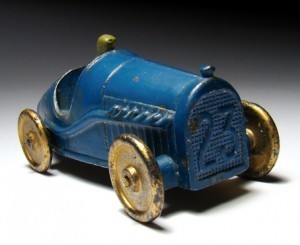 Issue 23 of Prime Number Magazine went live this morning, and we’re very pleased with it. The issue represents the first in our third year, and includes some excellent work:
Issue 23 of Prime Number Magazine went live this morning, and we’re very pleased with it. The issue represents the first in our third year, and includes some excellent work:
Short stories by Joe Samuel Starnes, L. McKenna Donovan, Susan Lago, and Ryan Meany; poetry by Devon Miller-Duggan, David Salner, and Jan Bottiglieri; reviews of books by Susan Woodring and Katrina Vandenberg; craft essays by Josh Woods and Heather Magruder; essays by Leslie Tucker, TT Jax, Vanessa Blakeslee, and Wendi Berry; and a storyboard by Emily Edwards.
That ought to keep you out of trouble for a while.
July 16, 2012
The New Yorker: “The Cheater’s Guide to Love” by Junot Diaz
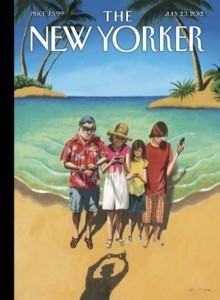 July 23, 2012: “The Cheater’s Guide to Love” by Junot Díaz
July 23, 2012: “The Cheater’s Guide to Love” by Junot Díaz
There certainly are things I like about this story. Díaz’s character Yunior is with us again—always—but he’s older now, and in pain. Granted, the pain is of his own making, but what’s good about that is that by the end of the story he comes to understand this. As Díaz himself says in the Q&A with Junot Díaz, Yunior finally seems to be seeing women as fully human beings, which hasn’t been the case before.
Here’s the story: Yunior, who teaches in Boston, is in a relationship with a woman in New York. She’s great and demands fidelity. He blows it—in a big way—and she dumps him. He’s broken up by this and his friends, including Elvis, try to help him. He rebounds into a relationship with a beautiful law student, but she cons him and he deserves it. He starts running to get back into shape, but injures his foot. He does yoga, but injures his back. He has mysterious tingling numbness in his arms—all representative of his inability to feel.
But he does make a connection—with Elvis’s bastard son in the D.R. It’s definitely a sign of maturity for Yunior, but he recognizes that Elvis has been had by the mother of the child. Yunior is growing up, although it’s not clear that he’s going to find the happiness he longs for.
I saved my complaint for last. The story is in second person, as Yunior is detached from himself, looking at how he came to be in the sorry position he finds himself in. So, okay, that makes second person almost work here—Yunior the narrator isn’t really the same as Yunior the character. And I gather that the new story collection of which this is part will be much the same—the title is This is How You Lose Her, so the point of view is going to work in the context of the book. (Díaz channels Lorrie Moore?)
July 9, 2012
Of Monkeys and Email
A few years ago, Gund—the plush animal manufacturer—came out with a new product: Garstang Gorilla. I was shocked when I heard about it. The thing was cute, but what the heck kind of name was Garstang for a stuffed gorilla? I contacted the Gund Corporation and was informed that the CEO had been driving around in the northwestern part of England where Gund has a manufacturing facility and saw the town of Garstang. He thought it would make nice alliteration with “gorilla” and so the name was born. The rest of this is conjecture, but someone must have pointed out—after the product had been available for some years—that the monkey in question looked more like a chimpanzee than a gorilla. Now the product is available as Garstang Chimpanzie. The alliteration is gone, and I’m guessing the product will disappear. (In fact, I can’t find it on the Gund website, although it’s still available from toy stores and Amazon.com. And I bought a couple of them for myself.)
But here’s a chimp of a different sort—MailChimp. In preparation for the publication of my new book, I began to explore using MailChimp, the email marketing campaign site, to make things easier, manage my email lists, etc. And today, my very first MailChimp email went out. I was excited to get responses from people, and only a few complaints. Believe me, I won’t be sending out very many messages to my list, but I apologize if the emails inconvenienced anyone. It’s really easy to opt out, if that’s what you want to do. If you didn’t get the email but would like to receive future notices, it’s also easy to opt in. Go to the home page of this website and complete the form in the upper right corner.
Thank you!
July 8, 2012
Tips for Writers: Are You Sure?
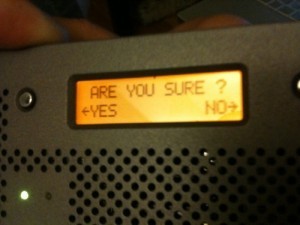 Many years ago, I participated in a workshop at a writers’ conference. My workshop instructor was pretty famous and I was a little intimidated by him. But the workshop went very well and the instructor turned out to be very nice, so it was overall a pleasant experience. When we had our one-on-one session at the end of the conference, however, I was horrified to have this important writer point out a grammatical error I had made repeatedly in the story I submitted for the workshop. I pride myself on correct grammar, punctuation, and usage, but he taught me a hyphenation rule I did not know. (At least I understood the need to hyphenate phrasal adjectives, which many writers seem to overlook.)
Many years ago, I participated in a workshop at a writers’ conference. My workshop instructor was pretty famous and I was a little intimidated by him. But the workshop went very well and the instructor turned out to be very nice, so it was overall a pleasant experience. When we had our one-on-one session at the end of the conference, however, I was horrified to have this important writer point out a grammatical error I had made repeatedly in the story I submitted for the workshop. I pride myself on correct grammar, punctuation, and usage, but he taught me a hyphenation rule I did not know. (At least I understood the need to hyphenate phrasal adjectives, which many writers seem to overlook.)
Here’s the rule I didn’t know, as quoted from Garner’s Modern American Usage: “When a phrasal adjective begins with an adverb ending in –ly, the convention is to drop the hyphen.” (So, instead of “hotly-contested race,” the phrase should be “hotly contested race.”)
More recently I was corrected on the placement of punctuation inside quotation marks. For reasons I no longer remember, I had believed there was an exception to the rule that (in American English) periods and commas always goes inside the quotation marks, such that when words are referred to as words, and therefore quoted, the punctuation would be placed outside. But either that exception has disappeared or I was hallucinating. In any event, it doesn’t apply now. As in: It’s easy to remember how to spell “Mississippi.” (Previously, I would have placed that period outside the quotation marks. I would have been wrong.)
Yesterday, a friend asked the question, “What is the correct past tense of “to weave”? [Note that the question mark is outside the quotation marks because the convention is that question marks and exclamation marks go outside the quotation marks unless they are part of the quoted material.] My friend first wrote “weaved,” then changed it to “wove,” and then changed it back again to “weaved.” I thought I knew the answer, but I might have followed my friend’s pattern and gone back and forth to get to the same place he did. In the context, “wove” didn’t sound right. Here’s what Garner has to say on the subject: “Weaved is correct only in the sense ‘moved in a winding or zigzag way.’” Otherwise it would be “wove.” In the way my friend was using it, then, “weaved” was correct: “He weaved in and out of traffic while she wove her scarf.”
My point here is that you may think you know grammar, punctuation, and usage well, but if there is the slightest bit of doubt—or even if you’re certain but someone else questions you—it pays to look things up. Keep a usage manual handy. And use it.
[I highly recommend Garner's Modern American Usage.]
July 4, 2012
Happy 4th of July — In an Uncharted Country
 My first book, In an Uncharted Country, is a collection of linked short stories set in the fictional town of Rugglesville, VA. The book culminates in the final story, “Red Peony,” during the annual 4th of July celebrations, when fireworks, including the Red Peony (pictured at left) illuminate the scene–metaphorically and otherwise.
My first book, In an Uncharted Country, is a collection of linked short stories set in the fictional town of Rugglesville, VA. The book culminates in the final story, “Red Peony,” during the annual 4th of July celebrations, when fireworks, including the Red Peony (pictured at left) illuminate the scene–metaphorically and otherwise.
Happy 4th of July! May your celebrations be safe and may they not unduly disturb my dog (who likes fireworks about as much as he likes thunder).
Happy 4th of July — in Raintree County
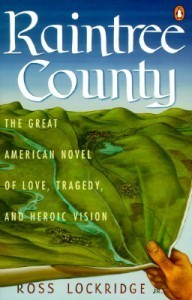 There’s a good chance you’ve never heard of Raintree County by Ross Lockridge, Jr., or if you have heard of it you’ve probably not read it. (Maybe you saw the 1956 movie starting Montgomery Clift, Elizabeth Taylor, and Eva Marie Saint–but believe me, it’s not the same experience.)
There’s a good chance you’ve never heard of Raintree County by Ross Lockridge, Jr., or if you have heard of it you’ve probably not read it. (Maybe you saw the 1956 movie starting Montgomery Clift, Elizabeth Taylor, and Eva Marie Saint–but believe me, it’s not the same experience.)
Raintree County is one of the best American novels of all time. Seriously. Like Ulysses, it takes place entirely on one day, July 4th, 1892, in Raintree County, Indiana. To read more about the book and its author, visit RaintreeCounty.com.
Shortly after the publication of this amazing book, Lockridge committed suicide. I highly recommend it.
The New Yorker: “An Abduction” by Tessa Hadley
 July 9 & 16, 2012: “An Abduction” by Tessa Hadley
July 9 & 16, 2012: “An Abduction” by Tessa Hadley
As we learn from the Q&A with Tessa Hadley, the author means for Jane’s experience in this story—a girl making the leap into adulthood—to stand for the whole period of the 60s. We might have guessed that on our own, but it doesn’t make the story any more interesting. (The story is available to read for free online.)
I confess that I have a prejudice against coming of age stories. We have all come of age, and so it just isn’t terribly exciting to read about, is it? Unless something really unique happens or the story is told in an exciting way. Here, the author, by titling the story “An Abduction,” holds out the promise of something quite exciting. Although we are warned in the opening paragraph that everything will turn out all right, it’s still a disappointment.
Jane is playing in her yard, having been given conflicting commands by her parents. Some wild older boys drive by and when they invite her to join them, she goes. And she goes along with them and even takes part when they shoplift at a liquor store. They go back to the home of one of the boys—the parents are away, just as oblivious as Jane’s own parents—and they all get up to no good. Jane is attracted to Daniel, one of the boys, and that . . . ends badly. Sex, drugs, alcohol are all involved, not necessarily in that order.
But then the story jumps forward into a kind of epilogue, disclosing (in an omniscient voice that is appealing) what becomes of Jane and Daniel and the others. In fact, this summary explanation of their future (which actually brings them up to more contemporary times) made me think that the story might be an excerpt from a novel. No, apparently. I’m glad it’s a stand-alone story, but it’s not a stand-out story, for me.
July 1, 2012
Still no power!
It’s Sunday morning and as of 7:30am I still didn’t have power. I drove into town looking for coffee and breakfast, but was too early for the locally owned coffee shops so I headed to the outskirts to hit the Starbucks. I’ll stop by the gym on the way home to workout and shower–the water pressure at home is getting low. The good news is that I’m hearing reports of restored power to some in the area, so I’m hopeful that today is the day. It’s now been 36 hours . . .
Yesterday afternoon I went in to Darjeeling Cafe for iced tea and Internet access, then stayed for dinner. The house was hot when I got home, and there wasn’t much I could do. So I listened to the radio for a little while, watched a DVD on the laptop (until I got worried about battery power), and went to be really early. It was hot!
Here’s to restored power!
June 30, 2012
Downed trees, no power
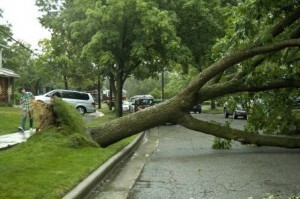 This isn’t my photo, but it gets the point across. Trees are down all over the area; power is out. The event I was supposed to do today at the Staunton Public Library got canceled. It’s a weird day.
This isn’t my photo, but it gets the point across. Trees are down all over the area; power is out. The event I was supposed to do today at the Staunton Public Library got canceled. It’s a weird day.
I was over in Charlottesville for a dinner meeting last night and drove back over the mountain at about 9pm. I didn’t know that we were expecting a storm, but as I came down the mountain I saw lightning in the distance. As I pulled off the interstate, the wind was crazy and there was lots of debris on the road. And then as I approached my house, there was a tree down across the road. I had to turn around and find another way home. I had to dodge a few limbs on the roads and then, when I got home, I wasn’t surprised that my garage door didn’t open (because the power was out).
Bhikku was kind of freaked out, naturally, but we hung out together and, when the storm passed, went to sleep.
This morning, still no power. I started the clean up of the yard–a million twigs down and several large limbs–but then headed into town with my laptop to do email and work. Blue Mountain was crazy with powerless refugees, so it was a little hard to work. So I went back home and took a serious crack at the yard–got all the bigger stuff cleared–and then came back into town.
And now my afternoon is free, too, because the event at the library was cancelled. No power, the library is closed.
When will the power at home come back?
June 29, 2012
Local Authors at Staunton Public Library, 1-5pm, 6/30/12
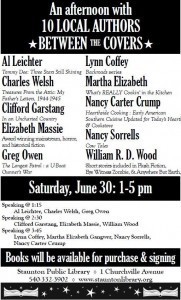 Libraries are wonderful places, and I was delighted when the Staunton Public Library invited me to participate in “Between the Covers,” an event with 10 local authors.
Libraries are wonderful places, and I was delighted when the Staunton Public Library invited me to participate in “Between the Covers,” an event with 10 local authors.
We’ll be at the library from 1-5pm on Saturday, June 30. Each of us will speak for a few minutes and answer questions, plus our books will be available for sale.
It’s going to be a really hot day, so spending some time inside the cool library is a great idea!




